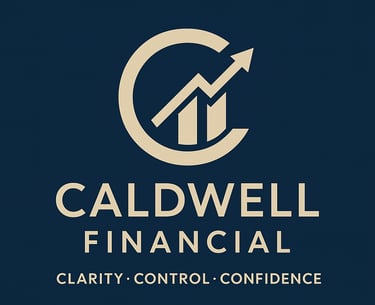Frequently Asked Questions
FAQs
Disclaimer
Inheritance Tax/Estate Planning, Trusts, Tax Planning and Succession Planning are not regulated by the Financial Conduct Authority.
Venture Capital Trusts (VCT), Enterprise Investment Schemes (EIS), Business Property Relief Schemes (BPR) and Alternative Investment Market (AIM) invest in assets that are high risk and can be difficult to sell, such as shares in unlisted companies. The value of the investment and the income from it can fall as well as rise and investors may not get back what they originally invested, even taking into account the tax benefits.
Pensions
Q: What’s the most tax-efficient way for a company director to contribute to a pension?
Employer contributions are typically the most tax-efficient. They’re an allowable business expense, reducing Corporation Tax, and don’t incur Income Tax or National Insurance for the director.
Q: How much can I contribute to my pension without triggering a tax charge?
The Annual Allowance is currently £60,000 (2025/26), but this can be lower due to tapering or if you’ve accessed your pension. We’ll help assess your situation and make sure contributions remain tax-efficient.
Venture Capital Trusts (VCTs)
Q: What are the benefits of investing in VCTs for high earners?
VCTs offer 30% Income Tax relief on investments up to £200,000 per year, tax-free dividends, and no Capital Gains Tax. They can be a smart option for directors who’ve maxed out pensions and ISAs.
Q: Are VCTs too risky for retirement planning?
They carry higher risk than mainstream investments, but can form a valuable part of a diversified, tax-efficient portfolio, especially for clients with surplus income.
Enterprise Investment Schemes (EIS)
Q: How does EIS help reduce my tax bill?
EIS offers up to 30% Income Tax relief, plus Capital Gains deferral and 100% Inheritance Tax relief after two years. Loss relief is also available, making it attractive for HNW investors.
Q: Can I use EIS to plan for business exit or succession?
Yes. EIS can provide tax relief on exit proceeds and offer long-term IHT protection. It’s often used by entrepreneurs after selling a business.
Inheritance Tax (IHT) Planning
Q: How can I reduce Inheritance Tax on my estate?
We help clients use strategies like gifting surplus income, trusts, pensions, and Business Property Relief to reduce or eliminate IHT. Planning early gives you more options and control.
Q: Will my pension be subject to Inheritance Tax from 2027?
Possibly. From April 2027, defined contribution pensions may be included in your estate for IHT purposes. We’ll help you structure your plans accordingly.
Trusts & Estate Structuring
Q: Are trusts still a good tool for estate planning?
Absolutely. Trusts can help control how and when wealth is passed on, protect beneficiaries, and mitigate IHT, especially when combined with Business Property Relief and life insurance.
Q: What’s the difference between a discretionary trust and a bare trust?
Discretionary trusts give more control and flexibility but are subject to periodic charges. Bare trusts are simpler but give beneficiaries fixed entitlement. We’ll recommend what suits your goals best.
Business Property Relief (BPR)
Q: How does Business Property Relief reduce my IHT liability?
BPR can reduce the value of qualifying business assets by up to 100% for IHT purposes, including shares in certain private companies and AIM-listed shares, held for at least two years.
Q: Can I still claim BPR if I’ve stepped back from running the business?
Possibly. It depends on your ownership and involvement. We’ll assess whether your company qualifies and structure your estate to maximise relief.
Tax Planning
Q: How can I take profits from my company tax-efficiently?
We advise on the best combination of salary, dividends, pension contributions, director loans, and company-paid protection policies to legally reduce personal and corporate tax.
Q: Should I leave money in my company or extract it now?
That depends on your income needs, business plans, and longer-term goals (e.g. succession, retirement). We’ll model both approaches and their tax impact.
Succession & Legacy Planning
Q: How can I pass on wealth without burdening my children with tax?
Using tools like trusts, gifting strategies, life insurance, and BPR, we help structure intergenerational wealth transfers in a tax-efficient, controlled way.
Q: Is a will enough for business succession?
A will is essential, but often not sufficient. Shareholder agreements, cross-option protection, and trusts may be needed to ensure continuity and avoid conflict.


Caldwell Financial
Specialist Financial Adviser to UK limited company directors, business owners, high-net-worth individuals and families.
Contact details
Email: info@caldwellfinancial.co.uk
Belfast: 02890 133385
© Caldwell Financial 2025. All rights reserved.
Caldwell Financial is an Appointed Representative of Quilter Financial Services Limited, who is authorised and regulated by the Financial Conduct Authority (https://register.fca.org.uk/s/).
Caldwell Financial is entered on the FCA register under Reference Number 1038319.
The guidance and/or information contained within this website is subject to the UK regulatory regime and is therefore targeted at customers based in the UK.
Inheritance Tax, Estate Planning and Trusts are not regulated by the Financial Conduct Authority.
Approver: Quilter Financial Services Ltd 28/07/2025
London: 0204 6182023


